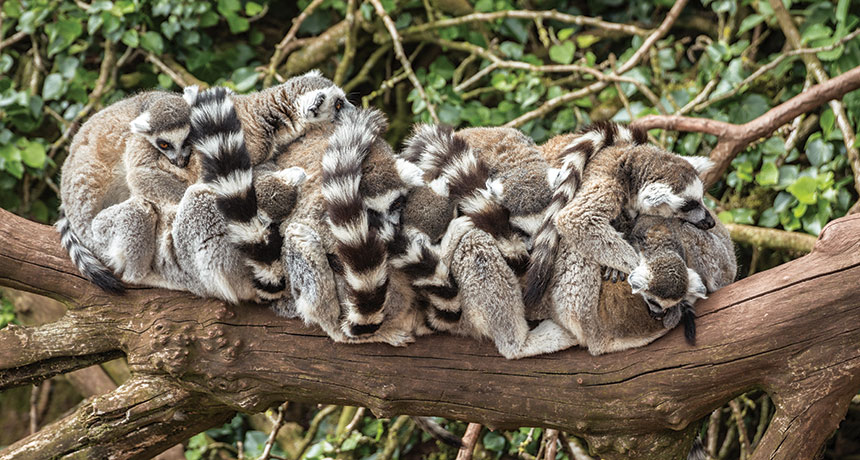Humans don’t get enough sleep. Just ask other primates.
Warning: Undefined array key 0 in /home/www/www.tspoem.cn/wp-includes/media.php on line 779
Warning: Undefined array key 0 in /home/www/www.tspoem.cn/wp-includes/media.php on line 785
Warning: Undefined array key 1 in /home/www/www.tspoem.cn/wp-includes/media.php on line 785
Warning: Undefined array key 0 in /home/www/www.tspoem.cn/wp-includes/media.php on line 787
Warning: Undefined array key 1 in /home/www/www.tspoem.cn/wp-includes/media.php on line 787
Warning: Undefined array key 0 in /home/www/www.tspoem.cn/wp-includes/media.php on line 790
Warning: Undefined array key 1 in /home/www/www.tspoem.cn/wp-includes/media.php on line 790
Warning: Undefined array key 0 in /home/www/www.tspoem.cn/wp-includes/media.php on line 779
Warning: Undefined array key 0 in /home/www/www.tspoem.cn/wp-includes/media.php on line 785
Warning: Undefined array key 1 in /home/www/www.tspoem.cn/wp-includes/media.php on line 785
Warning: Undefined array key 0 in /home/www/www.tspoem.cn/wp-includes/media.php on line 787
Warning: Undefined array key 1 in /home/www/www.tspoem.cn/wp-includes/media.php on line 787
Warning: Undefined array key 0 in /home/www/www.tspoem.cn/wp-includes/media.php on line 790
Warning: Undefined array key 1 in /home/www/www.tspoem.cn/wp-includes/media.php on line 790
Warning: Undefined array key 0 in /home/www/www.tspoem.cn/wp-includes/media.php on line 779
Warning: Undefined array key 0 in /home/www/www.tspoem.cn/wp-includes/media.php on line 785
Warning: Undefined array key 1 in /home/www/www.tspoem.cn/wp-includes/media.php on line 785
Warning: Undefined array key 0 in /home/www/www.tspoem.cn/wp-includes/media.php on line 787
Warning: Undefined array key 1 in /home/www/www.tspoem.cn/wp-includes/media.php on line 787
Warning: Undefined array key 0 in /home/www/www.tspoem.cn/wp-includes/media.php on line 790
Warning: Undefined array key 1 in /home/www/www.tspoem.cn/wp-includes/media.php on line 790
Warning: Undefined array key 0 in /home/www/www.tspoem.cn/wp-includes/media.php on line 779
Warning: Undefined array key 0 in /home/www/www.tspoem.cn/wp-includes/media.php on line 785
Warning: Undefined array key 1 in /home/www/www.tspoem.cn/wp-includes/media.php on line 785
Warning: Undefined array key 0 in /home/www/www.tspoem.cn/wp-includes/media.php on line 787
Warning: Undefined array key 1 in /home/www/www.tspoem.cn/wp-includes/media.php on line 787
Warning: Undefined array key 0 in /home/www/www.tspoem.cn/wp-includes/media.php on line 790
Warning: Undefined array key 1 in /home/www/www.tspoem.cn/wp-includes/media.php on line 790
Warning: Undefined array key 0 in /home/www/www.tspoem.cn/wp-includes/media.php on line 811
Warning: Undefined array key 1 in /home/www/www.tspoem.cn/wp-includes/media.php on line 811
Warning: Undefined array key 0 in /home/www/www.tspoem.cn/wp-includes/media.php on line 70
Warning: Undefined array key 1 in /home/www/www.tspoem.cn/wp-includes/media.php on line 71
Warning: Undefined array key 0 in /home/www/www.tspoem.cn/wp-includes/media.php on line 70
Warning: Undefined array key 1 in /home/www/www.tspoem.cn/wp-includes/media.php on line 71

People have evolved to sleep much less than chimps, baboons or any other primate studied so far.
A large comparison of primate sleep patterns finds that most species get somewhere between nine and 15 hours of shut-eye daily, while humans average just seven. An analysis of several lifestyle and biological factors, however, predicts people should get 9.55 hours, researchers report online February 14 in the American Journal of Physical Anthropology. Most other primates in the study typically sleep as much as the scientists’ statistical models predict they should.
Two long-standing features of human life have contributed to unusually short sleep times, argue evolutionary anthropologists Charles Nunn of Duke University and David Samson of the University of Toronto Mississauga. First, when humans’ ancestors descended from the trees to sleep on the ground, individuals probably had to spend more time awake to guard against predator attacks. Second, humans have faced intense pressure to learn and teach new skills and to make social connections at the expense of sleep.
As sleep declined, rapid-eye movement, or REM — sleep linked to learning and memory (SN: 6/11/16, p. 15) — came to play an outsize role in human slumber, the researchers propose. Non-REM sleep accounts for an unexpectedly small share of human sleep, although it may also aid memory (SN: 7/12/14, p. 8), the scientists contend.
“It’s pretty surprising that non-REM sleep time is so low in humans, but something had to give as we slept less,” Nunn says.
Humans may sleep for a surprisingly short time, but Nunn and Samson’s sample of 30 species is too small to reach any firm conclusions, says evolutionary biologist Isabella Capellini of the University of Hull in England. Estimated numbers of primate species often reach 300 or more.
If the findings hold up, Capellini suspects that sleeping for the most part in one major bout per day, rather than in several episodes of varying durations as some primates do, substantially lessened human sleep time.
Nunn and Samson used two statistical models to calculate expected daily amounts of sleep for each species. For 20 of those species, enough data existed to estimate expected amounts of REM and non-REM sleep.
Estimates of all sleep times relied on databases of previous primate sleep findings, largely involving captive animals wearing electrodes that measure brain activity during slumber. To generate predicted sleep values for each primate, the researchers consulted earlier studies of links between sleep patterns and various aspects of primate biology, behavior and environments. For instance, nocturnal animals tend to sleep more than those awake during the day. Species traveling in small groups or inhabiting open habitats along with predators tend to sleep less.
Based on such factors, the researchers predicted humans should sleep an average of 9.55 hours each day. People today sleep an average of seven hours daily, and even less in some small-scale groups (SN: 2/18/17, p. 13). The 36 percent shortfall between predicted and actual sleep is far greater than for any other primate in the study.
Nunn and Samson estimated that people now spend an average of 1.56 hours of snooze time in REM, about as much as the models predict should be spent in that sleep phase. An apparent rise in the proportion of human sleep devoted to REM resulted mainly from a hefty decline in non-REM sleep, the scientists say. By their calculations, people should spend an average of 8.42 hours in non-REM sleep daily, whereas the actual figure reaches only 5.41 hours.
One other primate, South America’s common marmoset (Callithrix jacchus), sleeps less than predicted. Common marmosets sleep an average of 9.5 hours and also exhibit less non-REM sleep than expected. One species sleeps more than predicted: South America’s nocturnal three-striped night monkey (Aotus trivirgatus) catches nearly 17 hours of shut-eye every day. Why these species’ sleep patterns don’t match up with expectations is unclear, Nunn says. Neither monkey departs from predicted sleep patterns to the extent that humans do.
